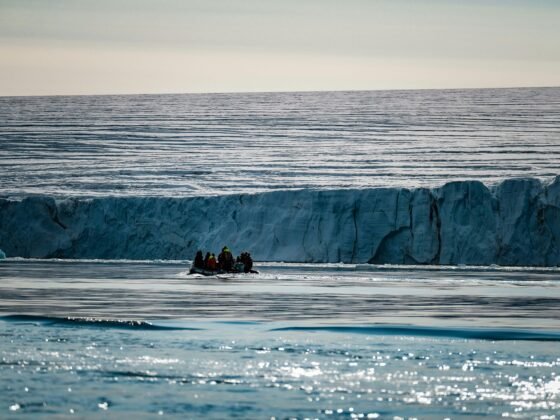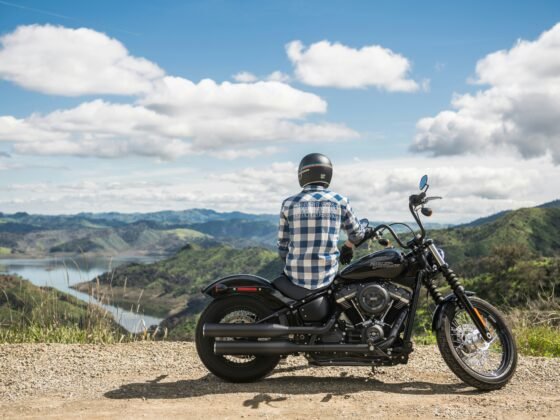
When planning for your road trip, a rental company can give you several vehicle choices for your selection. Furthermore, you can get various questions about what kind of vehicle you want for the trip. You’ll also hear of motorhomes, campervans, and recreational vehicles (RVs). All these can be confusing, especially if it’s your first time. Thus, it can be challenging to make the right choice.
What Is A Recreational Vehicle
A quick internet search can show you various photos. However, these photos may not clarify much about their differences. But the first term you should know here is the RV. A recreational vehicle is any vehicle or trailer designed to include living quarters. The size, comfort, features, and cost of an RV differ depending on the type. Campervans and motorhomes are both types of RVs. Other RV types include caravans, popup campers, coaches, and fifth-wheel trailers.
It’s crucial to note that the term ‘RV’ might not be familiar in some geographical locations. For instance, while its use is quite common in the US, you might still hear the terms ‘motorhome’ or ‘campervan’ in some countries. Therefore, recognizing the local terms used would be best. This can help you quickly work around the type of RV you need.
Categories Of Recreational Vehicles
When it comes to recreational vehicles (RVs), there are two main options: motorized or towable. Understanding the type of vehicle you prefer can greatly assist in budgeting for your rental or purchase. Additionally, your specific purpose and requirements will play a significant role in determining the most suitable RV for you. For example, if you’re a family of five or six, you might opt for a motorized RV. Furthermore, the location of your road trip can also impact your choice of RV. If you’re planning to explore the Dallas area, considering the option to rent towable toilets in Dallas can enhance your travel convenience and comfort.
The location of your road trip can also determine the type of RV to get.
Motorized Recreational Vehicles
A motorized RV has the living quarters and the engine built on the same chassis. The chassis, engine size, and living quarters will differ depending on the class category. Motorized RV can be Class A, B, or C. However, some RV vendors might also offer a Class B+ or Super C category. These two are the same and are an RV class between the B and the C.
Depending on the chassis manufacturer, RV engines can be gasoline or diesel-powered.
- Class A Recreational Vehicles
Class A recreational vehicles are the largest and can be purpose-built or converted from buses. Their chassis can have two or three axles, as you see on commercial buses. A typical length for this class can range between 25 to 45 feet. Furthermore, Class A engines can have a fuel mileage of eight to 10 miles per gallon. All Class A RVs are motorhomes.
This RV class is luxurious and can offer you the same amenities as you would at home. For instance, you can have separate bathrooms with full bath and shower facilities, a master ensuite, equipped with an RV queen bed (or sometimes even a king!) and a home entertainment system. You also get plenty of cargo storage space. Thus, you can have longer, self-sufficient road trips with a Class A RV.
However, all these attractive provisions come at a price. They’re the most expensive of all the RV classes. Thus, you’ll spend more money on purchase or rental, repairs or maintenance, and insurance. In addition, your fuel costs will also be high. Furthermore, its large size means that maneuverability is an issue. Thus, you might have difficulties with narrow roads and restrictive campsites.
- Class B Recreational Vehicles
All Class B RVs are typically campervans. They have an average length of 19 feet and are built on a van chassis. Like the Class A RVs, this class can also be gasoline or diesel-powered. However, they give you higher fuel mileage.
Facilities in a Class B RV can include a fridge, small kitchen, toilet, and shower. Campervans are cheaper to run and maintain compared to Class A motorhomes. They are also easier to drive and maneuver and have a simple campsite setup. Because they’re small, you can also use them to run errands during your camping trip. Thus, you don’t need to incur extra costs of hiring an errand vehicle.
Class B RV is most suitable for single travellers. But you can also use it with a travel partner. Its storage space is also small, and the interior living space can be restrictive. Therefore, you must consider your travel party’s size before choosing a campervan.
- Class C Recreational Vehicles
Class C are midsize motorhomes, usually built from an existing truck chassis. Even though they’re larger than Class B, they’re smaller than Class A RVs. The length of Class C RVs range between 20 and 33 feet.
You can use this class if you have a family of five to six members. It has a much more spacious kitchen than that of Class B. Additionally, they have a compartment that extends over the cab. This can function as a storage space or an extra sleeping area.
Like the Class A motorhomes, you might need an extra vehicle for errands. However, its maintenance and operation aren’t as expensive.
Conclusion
Campervans and motorhomes are both classes of RVs. However, the choice for your road trip can depend on your budget, the number of people, and the location. The above elaboration can help you make an informed decision on which RV to take for your next trip.












